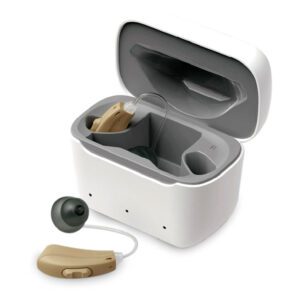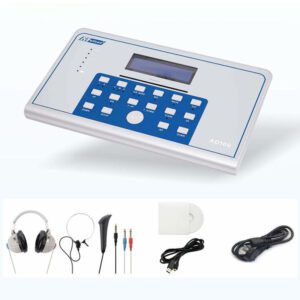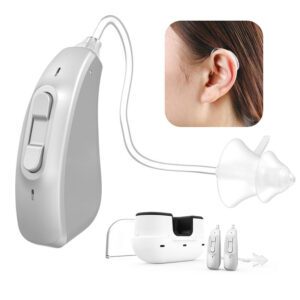Sensorineural hearing Loss: An Overview
Sensorineural hearing loss, also known as sensorineural hearing impairment, is a type of hearing loss that occurs when there is damage or dysfunction in the inner ear (cochlea) or the auditory nerve pathways leading from the inner ear to the brain. This condition can significantly impact one’s ability to hear and understand sounds, including speech. In this article, we will delve into the diagnosis, causes, and effects of sensorineural hearing loss.
Diagnosis of Sensorineural Hearing Loss
Diagnosing sensorineural hearing loss typically involves a comprehensive audiological evaluation, including the following key components:
Pure Tone Audiometry: This test measures the ability to hear tones at various frequencies (pitch) and loudness levels (intensity). It involves listening to sounds through headphones or earphones and responding when you hear a tone by pressing a button or raising your hand.
Air and Bone Conduction Testing: Pure tone audiometry includes both air conduction and bone conduction testing. Air conduction testing assesses how well sound waves travel through the ear canal and middle ear to reach the cochlea.
Bone conduction testing bypasses the outer and middle ear by vibrating the bones of the skull directly to stimulate the cochlea. By comparing the results of these two tests, audiologists can determine whether the hearing loss is sensorineural in nature.
If the air conduction hearing threshold and bone conduction hearing threshold fall within a specific range and show a minimal difference (usually within 10 decibels), it suggests sensorineural hearing loss as the likely cause.
Causes of Sensorineural Hearing Loss
Sensorineural hearing loss can be attributed to various factors and conditions, including:
Genetic Factors: Inherited genetic mutations can lead to abnormalities in the structure or function of the cochlea’s hair cells or the auditory nerve.
Infections: Certain viral or bacterial infections, such as mumps, meningitis, or untreated ear infections, can damage the inner ear and result in sensorineural hearing loss.
Developmental Abnormalities: Congenital anomalies or malformations of the inner ear can lead to sensorineural hearing loss from birth.
Aging (Presbycusis): As individuals age, the natural aging process can cause gradual damage to the hair cells in the cochlea, leading to sensorineural hearing loss.
Noise Exposure: Prolonged exposure to loud noise, whether in occupational settings or recreational activities, can damage the hair cells in the inner ear and contribute to hearing loss.
Head Trauma: Severe head injuries or skull fractures can disrupt the delicate structures of the inner ear and result in sensorineural hearing loss.
Effects of Sensorineural Hearing Loss
Sensorineural hearing loss can significantly impact an individual’s hearing and communication abilities:
Reduced Sound Detection: People with sensorineural hearing loss may require louder sounds to hear compared to those with normal hearing.
Narrowed Audible Range: The range between the softest and loudest sounds an individual can perceive, known as the auditory dynamic range, becomes smaller. This reduction in dynamic range can make it challenging to hear soft sounds and tolerate loud ones.
Decreased Frequency Resolution: Sensorineural hearing loss can impair the ability to distinguish between similar frequencies of sounds, making it difficult to understand speech in noisy environments.
Impaired Time Resolution: Individuals with sensorineural hearing loss may struggle to perceive subtle changes in sound over time, which can affect their ability to understand speech with temporal variations or in the presence of background noise.
In conclusion, sensorineural hearing loss is a complex auditory condition that can result from various causes and has distinct effects on hearing and communication. Accurate diagnosis and appropriate management, such as hearing Aids or cochlear implants, can help individuals with sensorineural hearing loss regain or enhance their auditory capabilities.




